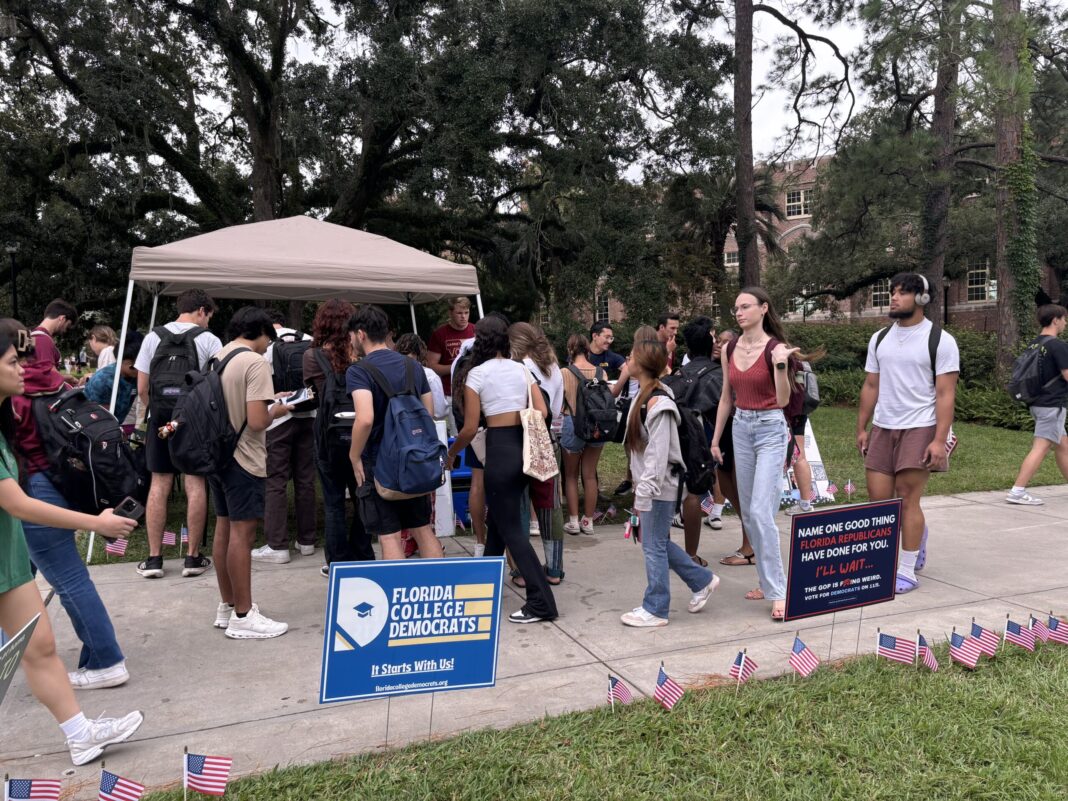Legislation Aims for Political Fairness on College Campuses
Highland Beach Republican Representative Peggy Gossett-Seidman is making waves in Florida’s educational landscape with her renewed effort to ensure political activities at colleges and universities are balanced and fair. Recently, she reintroduced HB 49, legislation designed to create clear guidelines for political engagement on school campuses.
Scope of HB 49
Initially covering a broad spectrum of public education, HB 49 aims to establish parameters for political activities from kindergarten through to higher education. Gossett-Seidman has indicated plans to modify this bill to focus solely on higher education, expanding its application to private institutions as well.
The underlying principle of HB 49 is to foster political parity and eliminate practices that may favor specific partisan interests, a concern that Gossett-Seidman emphasizes as being essential for maintaining accurate educational standards.
Objectives and Goals
According to Gossett-Seidman, the bill’s goals are rooted in fairness and equality. She stated, “It’s just doing the right thing to keep everyone straight, so that we do not have any group left out, no matter which group.” Her research highlighted discrepancies in political activities on campuses, noting that these inconsistencies could jeopardize funding for schools.
HB 49 seeks to implement rules that prohibit the posting and distribution of campaign materials on campuses, campaigning on behalf of specific candidates, and collecting donations for political parties. Furthermore, any form of political activity that could imply school endorsement of a candidate will also be restricted.
Candidate Engagement and Forums
The legislation stipulates that candidate forums or events could only occur if all qualified candidates are invited. However, individuals may still be allowed to speak in a personal capacity without discussing campaign-related matters.
Student newspapers retain the freedom to publish partisan editorials, provided they include disclaimers clarifying that the opinions expressed are solely those of the authors. Meanwhile, faculty and staff will be barred from using university resources, such as school emails or offices, for political advocacy.
Compliance and Violations
Under HB 49, violating any of the specified restrictions could result in serious penalties, classified as a second-degree misdemeanor. Offenders may face up to 60 days in jail and fines reaching $500, with each violation counted as a separate offense.
When questioned about the implications for nonpartisan groups, such as Florida Future Leaders or Turning Point USA, Gossett-Seidman clarified that as long as these organizations adhere to nonpartisan guidelines, they can continue their activities. Nonpartisan groups must conduct themselves impartially, ensuring they do not favor one political party or candidate over another.
Recent Developments and Legislative Journey
U.S. Representative Byron Donalds, a prominent Republican figure in the upcoming 2026 gubernatorial race, recently confirmed his intent to participate in a college tour alongside Charlie Kirk, founder of Turning Point USA. Gossett-Seidman suggested that under HB 49, their activities would remain permissible but tread a “very fine line.”
The bill is largely similar to prior legislation that Gossett-Seidman and Senator Jonathan Martin pushed during the 2025 Legislative Session, which ultimately did not advance. If passed, HB 49 is projected to take effect on July 1, 2026.
With the 2026 Legislative Session set to commence on January 13, interim committee meetings are scheduled for the week of October 6, setting the stage for what could be an influential discussion on political engagement in Florida’s educational institutions.
As the dynamics of campus politics continue to evolve, the implications of HB 49 stand to affect not only student engagement but also the historical tradition of free speech and political discourse within educational environments across the state.



